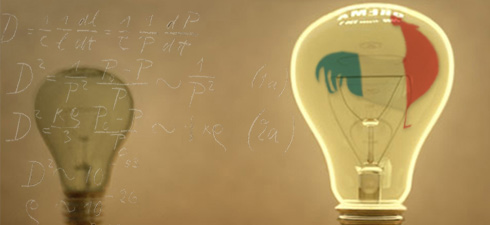There are times when you have to laugh at grammarians. They describe French as a horribly difficult language, full of complicated knots that only a lace maker could pick apart. They make a living out of highlighting everything that is contradictory or uncertain in our beloved Gallic tongue, which is presented as a tissue of nutty expressions, replete with irregular verbs, rebellious participles that refuse to agree, uncontrollable adjectives, singular plurals and outmoded tenses. In short, if you believed their descriptions, you would think that French was a dog’s dinner.
Take genders for example. There is no doubt that French genders are completely arbitrary, whereas in Hungarian, there is no such thing as a ‘masculine’ or ‘feminine’ common noun, nor is there in English. Ooh Hungarian! Ooh English! Neuters of the world, come forth and unite! Well all right, there is no intelligent reason for “le bureau” and “la Rose,” or “le lys” — and if that bothers the Magyars, big deal!
I would like to counter these critics with a completely gratuitous supposition: what if this subtlety, this lace-like quality, was in fact a secret strength of the French language? Remember? “La Rose” and “Le lys”… Recently, I was quite taken with an assertion made by a young French mathematician who had the temerity to suggest that French researchers in pure mathematics have outdistanced their international rivals, because “they use French,” and not English, as they do in the other sciences. Perhaps there is more to this than meets the eye… What if the complexity of our language, with its endless uncertainties and vacillations, and its fundamentally unstable and grammatically irrational tangle of masculine and feminine genders actually nurtured mathematical ability? What if this lace-like language facilitated the mental juggling required to investigate a deep level of mathematics? Could it be that a mind nurtured by an “irrational” language is better able to cope with the absurd madness of research in a field where two plus two does not necessarily equal four? Oh là là! Where is this labyrinthine reason taking us? Suffice it to say that there is no reasonable reason, apart from age-old convention, for “le lys” to be masculine or “la rose” to be feminine. None whatsoever. But what if this absurdity on the level of language made French speakers more wary, or simply more alert? What if the ability to tread water in semantic quicksand actually fostered the development of a mathematical mind, and thereby explained the mysterious powers of French Francophone mathematicians that have enabled them to lay claim to the vanguard of international research? — But dear readers, I feel that you are still not convinced. Perhaps, you are given to doubt because you are French, because you have fallen into the habit of proceeding cautiously to avoid grammatical errors, which are an omnipresent threat.
Was this article useful? If so we are delighted!
It is freely available because we believe that the right to free and independent information is essential for democracy. But this right is not guaranteed forever, and independence comes at a cost. We need your support in order to continue publishing independent, multilingual news for all Europeans.
Discover our subscription offers and their exclusive benefits and become a member of our community now!












